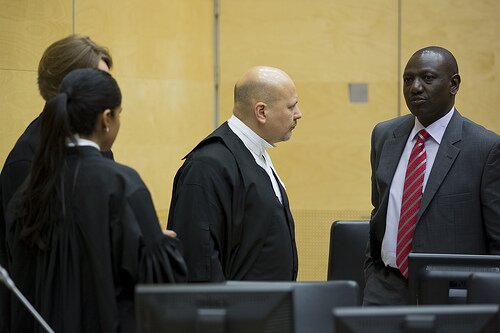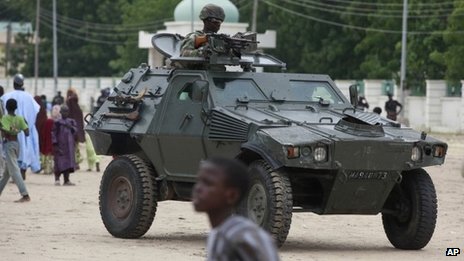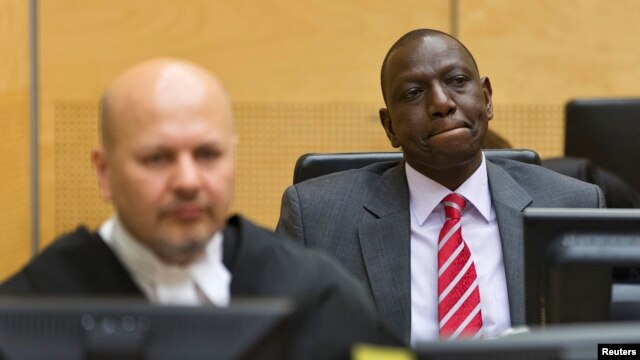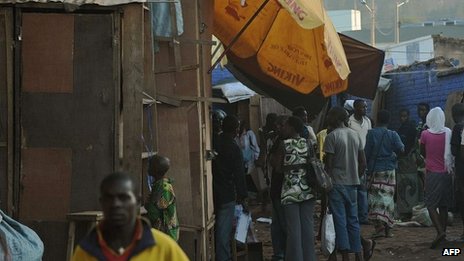By Erica Smith
Impunity Watch Reporter, Africa
TRIPOLI, Libya — The son of Libya’s former dictator, Moammar Gadhafi, missed a court hearing Thursday because the militia holding him refused to send him to Tripoli. The militia is reluctant to give up Gadhafi’s son because they view him as a trophy and bargaining chip with a central government that they do not trust and view as failing.
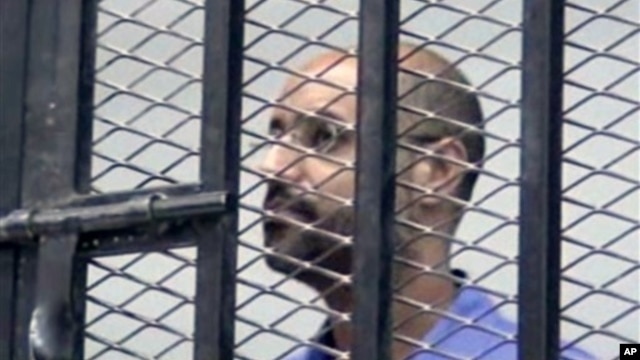
Seif al-Islam Gadhafi appeared at a separate hearing held in the town Zintan where the militia has been holding him since the end of the civil war. A judge at the hearing in Zintan postponed the trial until December due to a lack of evidence.
The charges Gadhafi faces in Tripoli are separate from the charges facing him in Zintan. In Zintan he is charged with “harming state security” because he gave sensitive information to an ICC attorney. In Tripoli and the Hague the charges are the more serious crimes against humanity related to events during the eight month civil war in 2011. The Tripoli trial also involves 38 former regime members including spymaster Abdallah Senoussi.
Al-Seddik al-Sur of the state prosecutor’s office told news media Thursday that authorities have asked for “justification” as to why Gadhafi was not transferred from Zintan.
Gadhafi has said that he wishes to stay in Zintan as “Zintan is part of Libya and I don’t have a desire to move to anywhere else.” It is believed that the militia in Zintan is in league with tribal groups that made up the base of support for Gadhafi’s father.
International rights groups have voiced concern about trial conditions facing Gadhafi. Amnesty International issued a plea on Wednesday that Gadhafi be handed over to the International Criminal Court (ICC) to face charges there.
“It is understandable that the authorities may want to proceed promptly and try these individuals in Libya. But such trials today will not serve justice…Libya’s justice system is in desperate need of an overhaul. There are serious concerns about the authorities’ ability to ensure fair trials compounded by the precarious security situation in the country. Both men should be handed over to the ICC immediately,” Amnesty said in their release.
This summer, judges at the ICC ruled that Gadhafi could not have a fair trial in Tripoli and asked that he be handed over to the Hague. Libya is appealing the ruling.
For further information, please see:
CNN — Libya Civil War Fast Facts — 20 September 2013
Fox News — Libya trial of Gadhafi’s son over “harming state security” postponed until December — 19 September 2013
Voice of America — Gadhafi Son Appears in Court in Tribal Stronghold — 19 September 2013
Abc News — Held by Militia, Gadhafi Son Misses Libya Hearing — 18 September 2013
Narharnet — Amnesty Urges Gadhafi Son Handover before Libya pre-Trial — 18 September 2013
